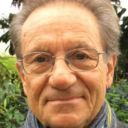Ioan Negrutiu is an agronomist and biologist, Professor Emeritus at ENS de Lyon and honorary member of the IUF.
In research, he developed his projects through a course ranging from the doctoral thesis at the Vrije Universiteit Brussel, post-docs and sabbaticals at Université de Paris 6 in Orsay, INRA de Versailles, the Friedrich Mischer Institute in Basel, and Caltech.
He is interested in the reproduction and evolution of plants through the molecular mechanisms of floral diversity. This study analyzes issues related to the origins of agriculture, the management of genetic, biomass and soil resources.
He teaches genetics, developmental biology and evolution, biological resources and biodiversity, but also the history of science and contemporary challenges in science and society. On an international level, he participated in Anthropocène Campus de Berlin, initiated by the Max Planck Institute and the House of Cultures of the World (HKW).
He is director of the Michel Serres Institute for public resources and assets where he accompanies students in projects that allow them to understand the decisive place of life sciences in the transition to a new culture of development. He also coordinates the work of researchers – in biology, economics and law – providing an integrated approach to natural resource issues.




